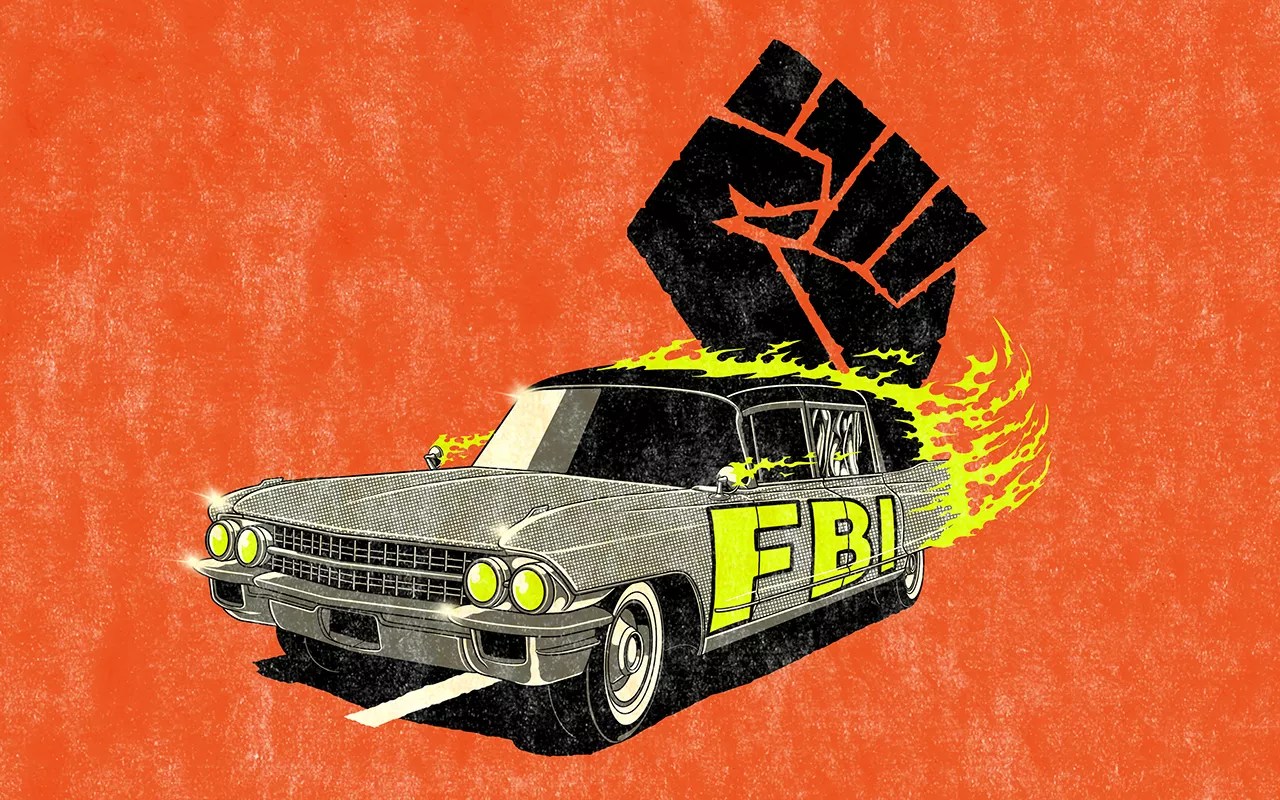
Sam Pierson

Audio By Carbonatix
As Trevor Aaronson watched coverage of racial justice protests across the country in the wake of George Floyd’s murder, the longtime journalist grew curious about how one particular law enforcement agency was responding to this key moment in civil rights history.
He saw Department of Homeland Security officers pulling people off the street in Portland. He saw local cops confronting – and sometimes brutalizing – protesters in Seattle, where some activists even set up a barricaded autonomous zone.
But one agency was flying under the radar.
“I was always struck by the fact that we knew very little about what the FBI was up to during this time,” says Aaronson, who has extensive experience reporting on law enforcement. “My hunch was that they were doing something under the table, like sending in informants in some way.”
He decided to find out.
“It was a bit like expecting a dog to chase a squirrel. There comes the point at which the dog can no longer resist. But I didn’t have any evidence to support my hunch, so I spent that year after the summer of 2020 trying to find that proof, initially unsuccessfully,” says Aaronson, who lives in St. Petersburg, Florida.
But in December 2021, the journalist struck gold. A source turned over a treasure trove of FBI documents and audio and video recordings that showed how the agency had a paid informant at the heart of racial justice protests – in Denver, Colorado.
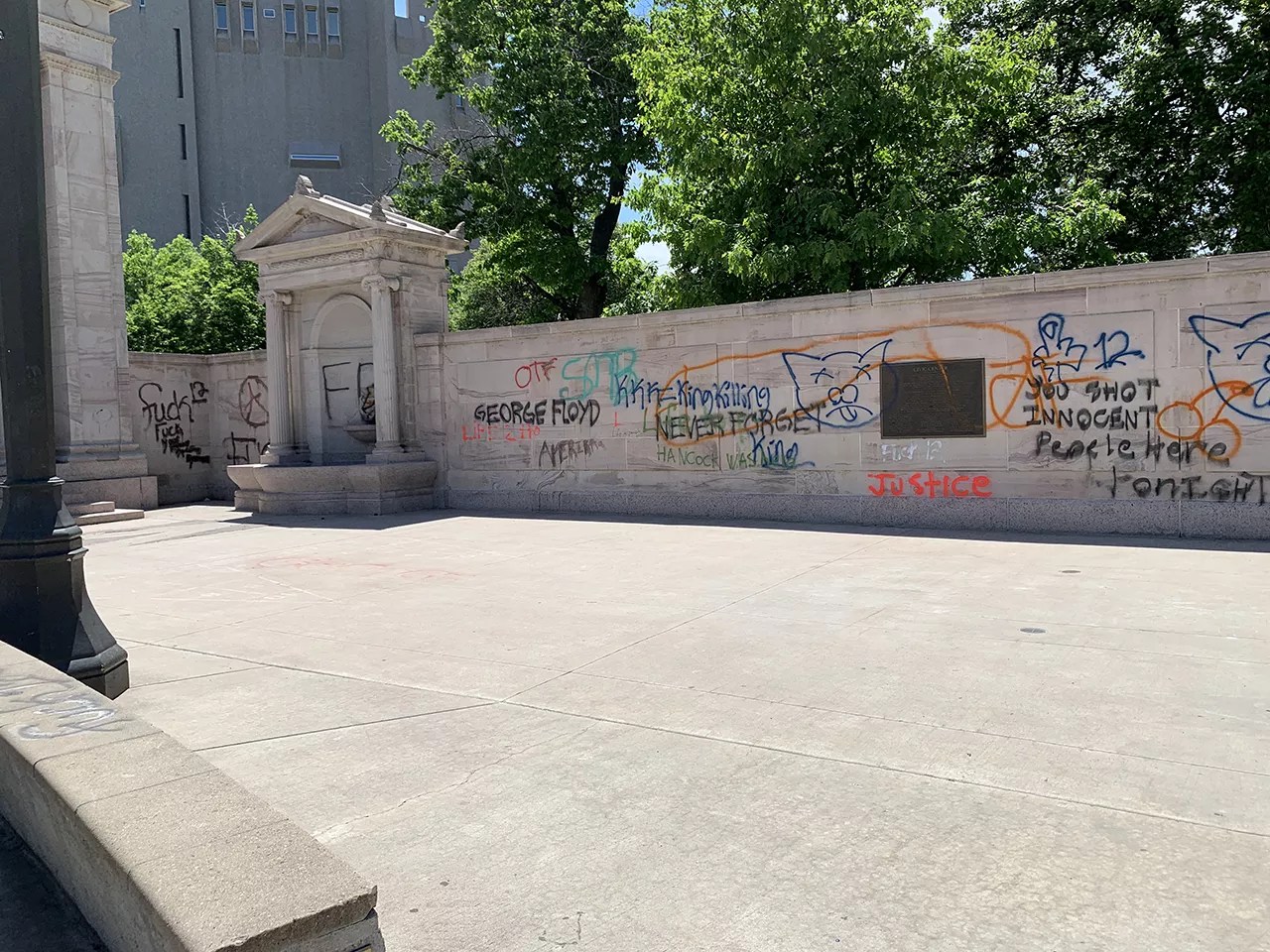
Denver’s protests were some of the most violent in the country.
Courtesy of Zebbodios Hall
That informant, Michael “Mickey” Windecker, had recorded countless hours of conversations with Denver demonstrators and constantly communicated with FBI agents, who were paying him $5,000 every few weeks at one point. All the while, he was pretending to be a radical racial justice revolutionary who wanted to upturn the system by any means necessary, including through violence. And Windecker, who frequently boasted about fighting with Kurdish militias against ISIS in the Middle East, was pushing certain protesters in a more extreme direction, even encouraging potential domestic terrorism actions that the feds could prosecute.
All of that and more is the subject of the riveting, ten-episode first season of Alphabet Boys, a new podcast produced by Western Sounds and iHeartPodcasts and reported and narrated by Aaronson. The series, which debuted February 7, is a must-listen for anyone concerned about social justice and law enforcement…especially in Denver.
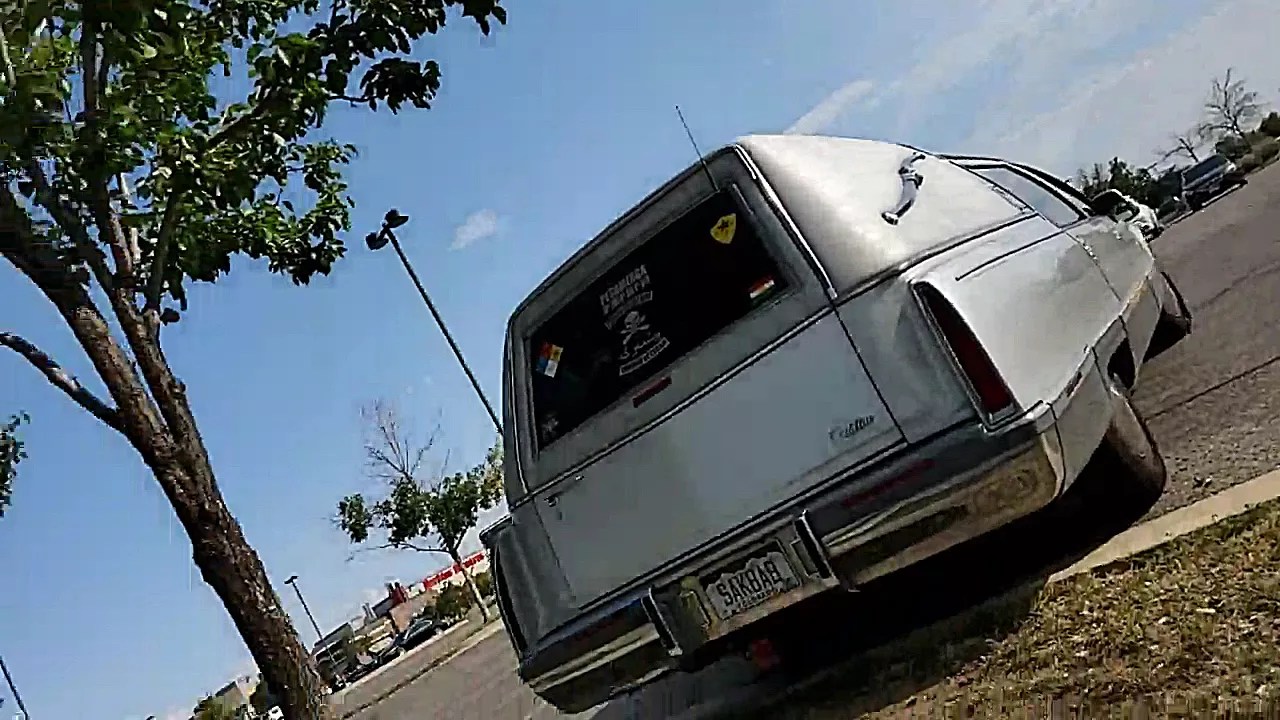
Mickey Windecker came into Denver driving a silver hearse.
Alphabet Boys
Aaronson, who worked as a staff writer at Miami New Times and New Times Broward-Palm Beach, sister papers of Westword, from 2003 to 2006, begins the podcast by placing the listener in the hectic environment of the Mile High City after George Floyd was murdered by Minneapolis police on May 25, 2020.
“Of all the racial justice demonstrations around the country in the summer of 2020, Denver, Colorado, saw some of the biggest, most intense protests,” Aaronson narrates. “The Denver-area police response to the demonstrations was brutal.”
Those protests started in earnest on May 28. Demonstrators took to the streets around the Capitol, and the Denver Police Department, which was a verbal target of protesters, responded with a heavy-handed use of tear gas, pepper spray, foam bullets and other less-lethal munitions. In the days that followed, the protests grew in intensity. The administration of Mayor Michael Hancock temporarily enacted a curfew, but the demonstrations continued.
Some protesters engaged in vandalism, while others hurled objects at police. Some Denver officers, as well as reinforcements called in from neighboring municipalities, met these provocations with more force.
Hundreds of people were arrested.
And then Windecker showed up on the scene, driving a silver hearse.

Michael “Mickey” Windecker
Alphabet Boys
“This dude was like a bad motherfucker,” Zebbodios “Zebb” Hall, recalls in the podcast. Hall, originally from North Carolina, had moved to Colorado in 2012 and worked in IT while becoming involved in racial and social justice advocacy, fighting homeless sweeps and evictions. He joined the Denver branch of the Party for Socialism and Liberation in 2018.
According to Hall and a handful of other activists interviewed for the podcast, Windecker presented himself as a veteran of the Peshmerga, the military of Iraqi Kurdistan, which had become well known in recent years for battling ISIS. Windecker also spoke about having been in the French Foreign Legion. He wore military fatigues and Kurdish flag patches, and sported Punisher necklaces and patches.
Windecker did actually travel to the Middle East to fight with Kurdish militants in 2014 or 2015, according to FBI files. But fellow foreign fighters that Aaronson interviewed said that he significantly embellished his battle chops. And Aaronson is the type of journalist who can spot a militant-group poser: For years, he’s covered Americans who attempt to join terrorist groups and are entrapped by the FBI. He also reported and narrated American ISIS, an Audible documentary about an American man who joined ISIS and died overseas while fighting for the extremist group.
Windecker, a man in his late forties who’d worked in metro Denver as a security guard, a cook and a tattoo artist, became a regular at local protests that summer. According to Hall, he kept “a shit-ton of guns” in his hearse. Hall was intrigued.
In August 2020, Hall invited Windecker to his apartment, where they began talking about how to make the protest movement more effective. In a recording obtained by Aaronson, Windecker asked Hall if he’d like some training, anything from hand-to-hand combat to “blowing up fucking buildings and guerrilla warfare tactics and sabotage.”
Hall, who spoke a big game at protests but denies any plans to harm individuals, didn’t commit to anything specific, he says, but told Windecker that he wanted to go “all the way uptown.”
Hall didn’t realize that Windecker was recording the conversation.
Windecker had already begun calling Denver-area police with tips, saying that he believed that “people who participate in violent civil unrest are terrorists.” The police – who work with the FBI on what’s called the Joint Terrorism Task Force – connected Windecker with that agency.
“This recording ended up being Mickey’s audition tape for the FBI,” Aaronson says of the conversation in Hall’s apartment. Windecker was soon meeting with local FBI Denver agents in unmarked vehicles. The local FBI bureau began paying him thousands of dollars to go after Hall and other activists, securing evidence so that they could be charged federally.
“Thanks, Mom. Thanks, Dad,” Windecker said to two local FBI agents after he received a hidden camera from them and got out of their car in August 2020.
The Denver FBI declined to discuss Windecker or the revelations of the podcast.

Zebbodios “Zebb” Hall was already active in Denver’s protests when he met Mickey Windecker.
Courtesy of Zebbodios Hall
Although Windecker was trying to work with law enforcement, he hadn’t always been on the right side of the law. He had a lengthy rap sheet, including convictions for felony menacing and misdemeanor sexual assault dating back to when he was twenty and had sex with a fourteen-year-old girl whose age he claimed he didn’t know.
While spending time in jail and prison, he developed a knack for snitching, which appears to have gotten past convictions sealed or expunged and might have helped him avoid prosecution in certain circumstances, the podcast suggests.
As Windecker continued to focus on Hall, he began snitching on other activists, including Bryce Shelby.
He connected with Shelby, who was born and raised in Aurora, after seeing him at protests in his hometown carrying an AR-15 type of rifle.
“For me, I straight-up carried it because I was like, ‘They’re killing black folks like this,'” Shelby tells Westword. “People are trying to do this politically correct shit in a system that is not politically correct.”
The series highlights the violin vigil for Elijah McClain outside the Aurora Municipal Center in late June 2020, in memory of the 23-year-old Black man who’d died following a violent arrest by Aurora police officers in August 2019. The Aurora cops used tear gas on participants at the vigil, which angered many protesters, including Hall.
Tapping into that anger, Windecker acted like a drill sergeant at certain protests that seemed more like coordinated attacks against Denver police stations in late August 2020, the podcast notes.
“I feel that he escalated violence or created violence. There were a lot of kids out there for those protests,” Hall tells Westword, referring to some of the younger protesters as kids while acknowledging that they were likely in their early twenties.

Courtesy of Zebbodios Hall
Between protests, Windecker talked with the activists he was targeting at local chain restaurants. At one point, he met Hall and Shelby at a Famous Dave’s. During that meeting, he suggested blowing up a courthouse or shooting the Colorado attorney general.
Hall, who says now that he was afraid of Windecker at the time, talked about using Denver’s sewer system as part of a plot, which Windecker shut down.
But Shelby got on board with the idea of assassinating the attorney general and noted that he’d gotten his address at a protest. During the meeting, Shelby kept confusing the attorney general with the Denver district attorney, but Windecker egged him on.
“I’m feeding into that, like, this is a real mercenary,” recalls Shelby, a Denver-area rapper who goes by the stage name Acostic and works as a FedEx supervisor.
Not long after that meeting, Windecker and Shelby met at a TGI Fridays with a “friend” of Windecker’s, who was actually an undercover FBI agent. Shelby again displayed that he didn’t know much about Attorney General Phil Weiser, whom he kept referring to as “the district attorney.” But he agreed to take a ride by Weiser’s house with the undercover FBI agent, and outside the home he talked about how he could kill the AG if he got the chance.
Then Shelby started to get cold feet and asked the FBI agent how much it would cost to hire a hit man to take out Weiser. The FBI agent responded that it would cost $500 to $600. That told Shelby there was something off about the guy.
“You’re a motherfucking mercenary. If you’re catching a body, I’m pretty sure you’re charging more than $500,” Shelby says now.
Shelby ghosted Windecker and never spoke to him again. In November 2020, guns at his Aurora home were seized by law enforcement officers, who cited Colorado’s red-flag law, which allows such actions when a person is an extreme risk to himself or others. But Shelby wasn’t arrested or charged in connection with his threats against Weiser after the AG asked law enforcement not to pursue the matter.
“Law enforcement determined that the individual posed a threat, and they sought an Extreme Risk Protection Order. The AG thought that was an appropriate response,” explains Lawrence Pacheco, a spokesperson for the Colorado Attorney General’s Office.
“There was a whole bunch of talk about conspiracy to commit capital murder,” Shelby says. “I didn’t have a plan to do this shit. Never did. I said some shit, but as far as planning for it – ‘We’re going to do this step one, this step two’ – I didn’t have all of that.”
“The problem for confidential informants and the FBI [is that] the incentive structure is really built so that it’s not for looking for cases that are necessary and good and important, but looking for cases in general,” says Aaronson on the podcast. “Five thousand dollars every few weeks. If he doesn’t build cases or progress cases, they’re going to stop paying them.”
Realizing that his idea of creating some grand case for the FBI was falling apart, Windecker eventually got Hall to buy him a pistol at a Bass Pro Shop in late August 2020.
“I just got terrified and intimidated into getting this dude this gun,” Hall says now, adding that he felt like Windecker might hurt him if he refused.
Since Windecker had a felony conviction, Hall was eventually nabbed by the feds for buying a gun for a convicted felon, with the indictment coming down in July 2021. Facing a potential sentence of ten years in prison if he went to trial and lost, Hall took a plea deal.
He copped to the felony charge and was sentenced to three years of probation last September. Still, he now has a felony conviction on his permanent record.
“Dude, I can’t even get a job at DoorDash,” says Hall, who was working as an IT support technician when he was arrested. “It was my first case. Why not give me a diversion program?”
As the summer of 2020 moved into fall, other activists began to catch on to Windecker. The snitch’s ties to protesters frayed until they broke entirely. His payday with the FBI may have ended.
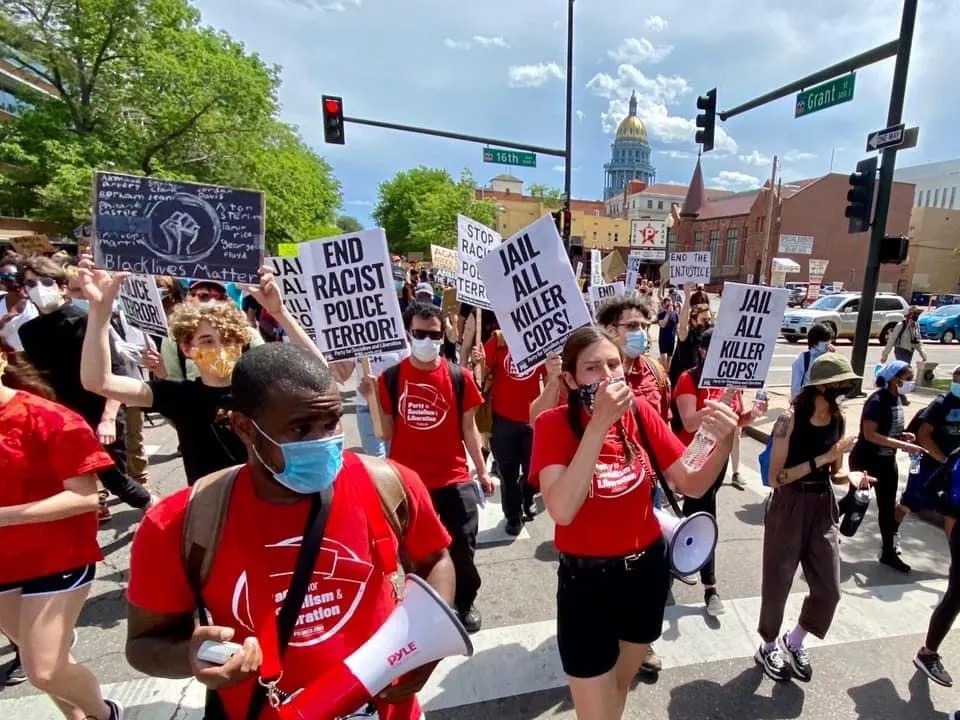
Denver protesters got out early after the murder of George Floyd.
Courtesy of Zebbodios Hall
After he received all the tapes and papers from Denver, Aaronson connected with Windecker over the phone; on the podcast, Windecker denies that he worked for the feds. He hasn’t responded to Aaronson since that initial call.
When Westword called the number where Aaronson had reached Windecker, the person who answered said that he wasn’t Windecker and that it was the wrong number.
While Windecker’s informant work officially resulted only in the seizure of Shelby’s guns – which he eventually got back – and the case against Hall for buying him a gun, Aaronson believes that Windecker had a much more insidious effect on the protest movement in Colorado.
Placing informants within organizations that are engaging in protected free speech activities has a corrosive effect that can lead to suspicion and the eventual failure of certain movements, Aaronson notes. One of the most egregious examples of the FBI overstepping its bounds – and going after protected First Amendment activities through what’s known as COINTELPRO – was placing informants to spy on Fred Hampton and the Black Panthers in the late 1960s. The FBI also investigated the Black Panthers and the Chicano movement in Denver.
Following a series of congressional hearings in the 1970s, the FBI ostensibly appeared to rein in some of the agency’s worst practices. And in recent years, FBI leadership has stated that the law enforcement agency doesn’t target people for First Amendment-protected activities. But that may not be true, as evidenced by the federal agency’s work with Windecker.
“What I was really struck by in reporting there and in interviewing the activists was the sense of paranoia that had developed in Denver from that summer,” Aaronson says. “COINTELPRO no longer exists. But even though it no longer exists, these methods still exist. And Mickey’s case shows that.”
The FBI’s work with Windecker did lead to an undercover, pink-haired Colorado Springs Police Department officer infiltrating left-wing activists in that city. But activists soon discovered her identity, and she vanished from the Colorado Springs scene. That saga is the focus of one episode of Alphabet Boys.
Another ramification: Hall was labeled a snitch by some in the Denver protest scene. A common tactic of FBI informants is to get those in groups they infiltrate thinking that another person is a snitch rather than the actual informant, in a move called snitch-jacketing.
“I’m so happy the snitch jacket is coming off. It’s been terrifying,” Hall says. “When you put a snitch jacket on someone, in any situation, [whether] it be gang, mafia or anything, especially if there’s a protest situation, it puts you at risk, because people might want to hurt you.”
Hall, who says he no longer belongs to the PSL or goes to protests, is looking forward to the podcast not only clearing his name, but stopping Windecker from working as an informant. He’s also hoping that other informants who worked across the country during the George Floyd protests will be unmasked. “Where are the whistleblowers?” he wonders.

Denver’s protests also remembered Elijah McClain.
Courtesy of Zebbodios Hall
Shelby says he’s glad that people will at least learn the truth about how the FBI operates.
“At bare minimum, at least people get to know that this is how your FBI gets down,” he adds. “I feel like they did exactly what they were supposed to do. The FBI is not something for Black folks. The FBI has a lot of instances historically of doing things geared toward making us look bad as a race, as a people.”
Reflecting on his decades of work reporting on law enforcement, Aaronson says, “From a very cynical standpoint, there is just an incentive built into the system to create these kinds of cases and to pursue these cases as big cases rather than cases that you can kind of preempt by scaring someone. I think in a lot of these cases, if someone like Bryce Shelby or someone targeted in one of these terrorism stings, I think if the FBI went to their home dressed in suits…in most cases, those people would just stop: ‘Oh shit, I took it too far, my rhetoric was too heated, and I didn’t really mean it.'”
But as Aaronson says FBI agents have told him over and over again, they’re not a social services organization. “We’re a hammer looking for nails,” they tell him.
In Denver, they didn’t hit many nails.
Besides Hall, the feds prosecuted a handful of people connected to the George Floyd protests in metro Denver, including a man who fired a gun into the air and another who trained a laser on a helicopter. Several members of the PSL were arrested over the Aurora protests; those charges were eventually dropped. And while Denver police arrested hundreds of protesters, only a handful of them were ultimately prosecuted.
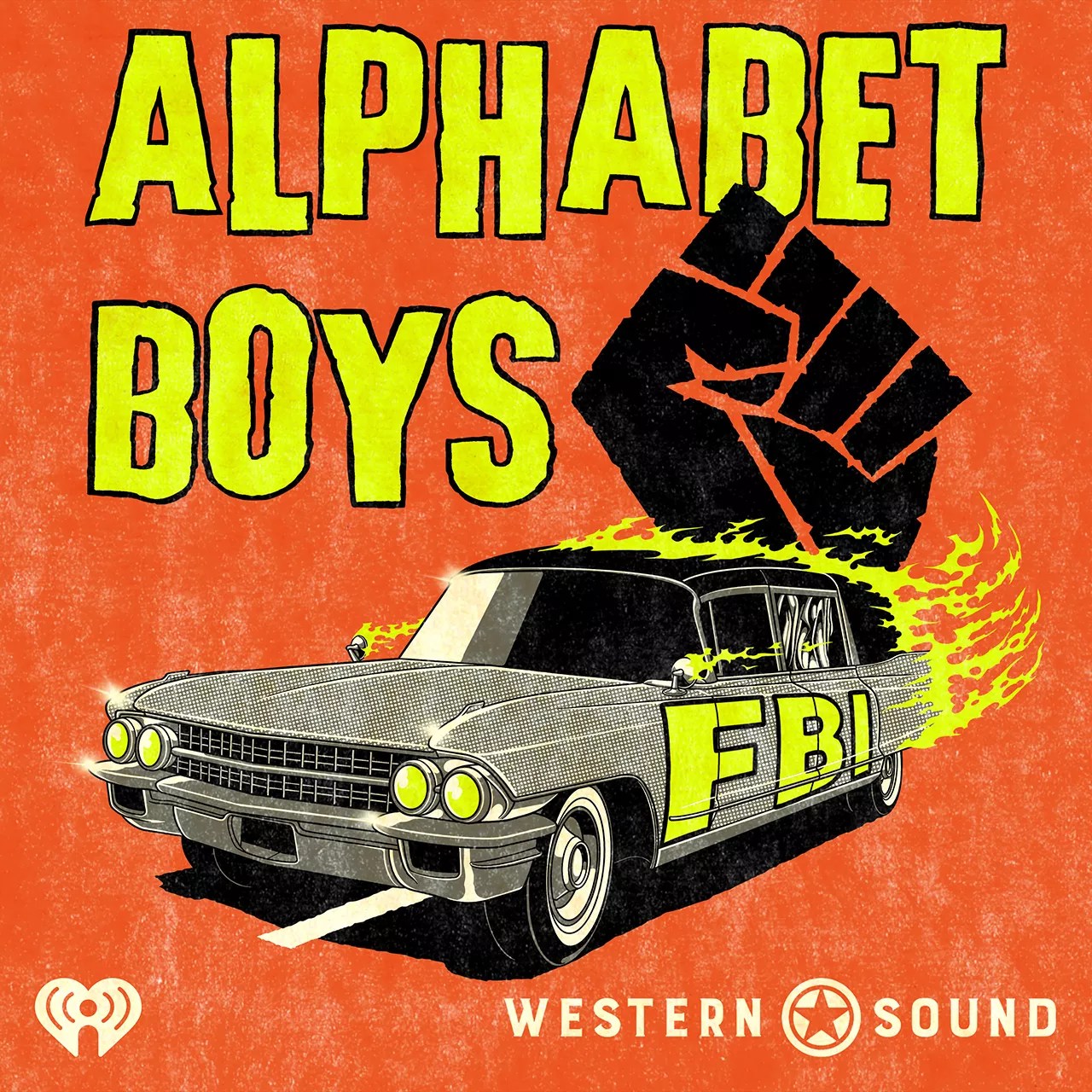
Alphabet Boys is a new podcast created and narrated by Trevor Aaronson.
Sam Pierson
But the protests still resulted in plenty of court action. Dozens of protesters wound up suing the City of Denver and the Denver Police Department for their heavy-handed actions during the demonstrations. One case involving constitutional violations of the rights of twelve plaintiffs resulted in a $14 million verdict against the city in March 2022; Denver has appealed. Other protester suits are still pending.